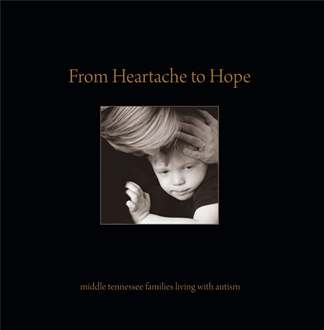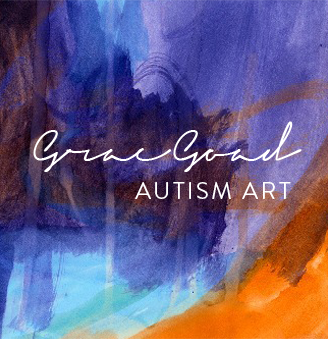What was I thinking 18 years ago? What did I think this Now I am living would be like? Last weekend, I sat on a park bench with tears suddenly forming rivers down my face as I watched my friend, once again, interrupt our conversation to run after her special needs son who’s in his late teens. Again, he ventured too close to the busy street. Another time he approached a stranger for a hug.
Eighteen years ago, the leading Vanderbilt autism researcher exclaimed “the sky is the limit!” Three was a magical number for autism diagnoses. Or so we thought back in 1997. My friends, at the time, whose sons and daughters were not diagnosed until five or seven, assured me, we were fortunate to have discovered Grace’s autism so early. I don’t relay that with sarcasm. I was grateful that we had a two to four-year headstart. Then, three became two. Two was the new magical number. Two was indeed much closer to ideal early identification and a greater chance at an improved outcome. Children diagnosed in these years, this day and time, look very different than Grace’s generation. Is what is. I do not begrudge.
The reality is that when a child is young, a family cannot see the proverbial forest for the trees. None of us know what the yet unborn future holds. A child originally diagnosed with severe autism can progress to the point of earning a Ph.D. Another diagnosed as higher functioning can struggle to ever live independently. Some diagnosed at the new magical number will have a similar prognosis as Grace and some of her peers. Some sort of yet still incompletely parsed out—as far as I know—subset.
So, we craft our dreams and work hard and then reach this critical point of Now and see just how far we’ve come. We have come far in the sum of life and learning. And then there’s my friend, a decade younger than me, but hair graying like mine, running after her child at the park. Just as I ran after mine snatching her from the border of a traffic-cluttered road. Grace no longer runs toward the street, luckily, the early intervention of sensory retraining helped that behavior. But she’s as vulnerable as my friend’s son in other ways and also many of the same ways.
Reality: our challenges as mothers—whatever form they take—are matched with each other and the hundreds of thousands of mothers like ourselves in that we are parenting children in grown or near grown bodies.






I can not even imagine the struggle and the worries you have had to endure. I am not on any level close to your challenges but I do understand mothering of adult children. My oldest son is 25 and has type 1 diabetes. Yes, he is grown. Yes, he takes care of himself for the most part. But the worry is so hard for me. I have a uncanny instinct to recognize symptoms long before anyone else and I am not sure I will ever be able to trust someone else taking over my role well enough. Thank you so much for linking up to #MidLifeLuv. I am very pleased to have found you.
Elena Peters recently posted…#MidLifeLuv Linky Party June 5/15
Ahh, how nice, @Elena. Thank you for saying you are pleased to find moi. Likewise. Here’s the deal. You have diabetes, I have autism. Autism, schmatism. It doesn’t matter because it’s yours and it’s mine. Apples and oranges. No comparison. It’s real, regardless of the perceived degrees of challenges. That’s my take and a guiding principle in life and especially life with disAbility. We’re all on our journeys. It’s all about how we choose to deal with whatever’s on our path. That’s my truth. And, yeah, I totally get not trusting others and that keen sense of mother-knowing. I’m actively looking for ways to create an empty nest for my life. That’s a whole ‘nother story. But, yeah, I’m thinking, will they value nutrition, exercise, yada yada….Namaste.
Thank you Leisa for this heartfelt post. As mothers we seem to have that built in radar for our children. I can think back to flashes of understanding about each of mine when they were still quite young. Those flashes have come to fruition. It’s quite a journey we’re on, so much love coupled with so much concern.
Thank you for joining us at the MidLifeLuv Link-Up –we’re so happy to have you!
Kimberly
http://FiftyJewels.com
Yes. Perfectly put, Kimberly: “so much love coupled with so much concern.” Thank you for your kind and understanding comment. Congrats on the launch.
Happy to have found you. I am the sister in law of a man in his mid 50’s with autism. We all have our own individual experiences. “B”, as I call him in my occasional blog posts, is probably going to be moving to where we live in upstate New York in the next few months. My husband, his oldest brother, is his guardian. This is probably going to be stressful for him (and us!) in a lot of ways, but he looks forward to living close to his favorite mall. Yes, he loves being in malls and shopping in them.

Alana recently posted…Why I Pretend to Walk a Tightrope
Alana, I’m glad that he has somewhere to go. NY, comparatively has good supports. But, you are right, it is stressful and we do all have our own individual challenges in managing it. Thanks for your kind words.
Your post really pushed button for me. For parents of autistic children, the struggle with mainstream society must be unbearable. I left my career in photojournalism to study and eventually go into work with ‘special needs’ children. I worked with lots of ‘special’ children between the ages of 7 and 18, all had various labels including autism. The biggest problem that these children and their families faced was the attitude of mainstream society. When I adapted my practice to accommodate the differences instead of trying to make them ‘fit in”, I was heavily criticised and eventually bullied by my co-workers. What I saw happening was horrendous. The ‘mainstream’ has much to answer for. I am sure your post will resonate with many families who live with this dreadful lack of understanding. I live in the UK – so I don’t know how the U.S. Society treats people with a perception that is at odds with ‘normal’ people. I mean, what is ‘normal’ anyway!!

Gilly Maddison recently posted…Bentwaters Air Base On Red Alert!
Thanks, Gilly. I would not say it is unbearable. I think the attitude i choose makes is more bearable or not. But you do get it that, as I’ve said since the beginning, the systems that are supposed to serve often end up doing disservice. Good for you to care about our community and work with those who have special needs. We haven’t reached a level of signifcant cultural awareness yet in the US regarding our population. It is increasing, however.
How sad. I feel for you and all parents with similar circumstances. Your life must be so hard with this extra challenge. It’s easy for me to say, but just love them.
Francene, is what is. I do not feel sad or that our lives are sad. What is sad is the lack of supports societally. And yes, I love my child though she needs a lot more than love. But the truth is what I have written here. The cold hard facts. Thank you for your comment.
Beautifully written, Leisa. There is therapeutic value in putting emotions on a screen while editing those words. You have a gift for making your readers share in your emotions and experiences.
You are remarkable.
Larry: thank you.